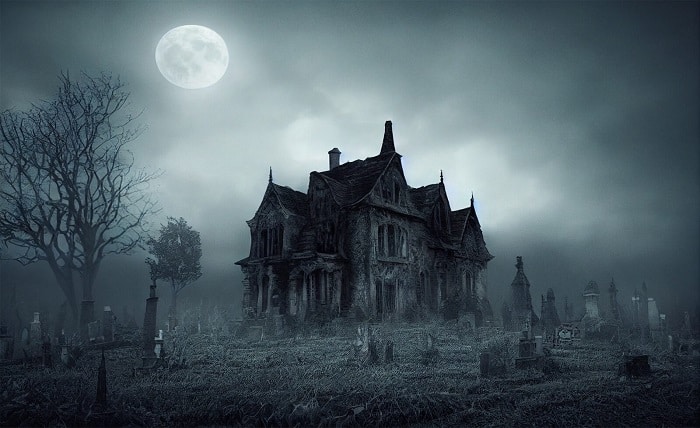Trails Carolina: Beyond the Wilderness, Lies a Haunting Tale of Alleged Abuse

Nestled amid the lush Carolina wilderness, Trails Carolina promised adventure and healing for troubled teenagers. A renowned wilderness therapy program, it advertised reconnection with nature and self through immersive outdoor experiences. But beneath the veneer of transformative therapy, a different story has begun to emerge, one painted with chilling shades of alleged abuse, neglect, and unsettling practices.
This blog post delves into the shadows plaguing Trails Carolina, amplifying the voices of former participants and their families who claim harrowing experiences within the program. We’ll navigate the tangled web of disturbing narratives, dissect the official responses, and examine the ongoing investigations that seek to shed light on the truth behind the “Trails Carolina horror stories.”
A Trail of Unnerving Whispers
The stories began to surface like flickering shadows in a campfire’s glow. Parents shared accounts of their children returning from Trails Carolina emotionally broken, bearing invisible scars from alleged verbal and emotional abuse. Former participants spoke of prolonged periods of isolation, inadequate food and sanitation, and harsh punishments for disobedience. These whispers coalesced into a chorus of concern, painting a disturbing picture of what lay beneath the program’s idyllic facade.
Echoes of Trauma
Specific allegations leveled against Trails Carolina range from humiliation and belittlement to physical and emotional manipulation. Stories of participants forced to stand for hours in freezing temperatures, denied access to basic necessities, and subjected to demeaning rituals, like crawling through mud or being buried alive for simulated panic attacks, are truly gut-wrenching. The psychological impact of these alleged experiences, as shared by survivors, paints a harrowing picture of trauma and lasting emotional damage.
Cracks in the Facade
As these accounts gained traction, scrutiny towards Trails Carolina intensified. Investigations by state agencies and independent journalists unearthed concerning discrepancies in the program’s practices and employee background checks. Reports highlighted a lack of qualified staff, inadequate training for wilderness therapy, and questionable protocols for handling sensitive situations. The cracks in the once-glowing facade of Trails Carolina were becoming increasingly visible.
A Symphony of Denial
Trails Carolina has vehemently denied all allegations of abuse and mistreatment. They claim strict adherence to ethical guidelines and prioritize participant safety and well-being. However, their responses often feel dismissive and fail to address the specific claims put forward by survivors. Their attempts to shift blame to individual staff members or paint the narratives as exaggerated accounts ring hollow in the face of mounting evidence.
Whispers Turning to Roars
The “Trails Carolina horror stories” are no longer mere whispers echoing in the woods. They have evolved into a roar demanding justice and accountability. Survivors and their families are banding together, forming advocacy groups and amplifying their voices through social media campaigns and legal action. Their tireless efforts are forcing a necessary reckoning with the dark side of wilderness therapy, urging a thorough investigation and potential reform within the industry.
Beyond the Shadows: Seeking the Light
Amidst the darkness, it’s crucial to remember that wilderness therapy, when implemented ethically and responsibly, can be a powerful tool for healing and growth. However, the case of Trails Carolina serves as a stark reminder of the potential for exploitation and harm within such programs. Moving forward, robust regulations, stringent background checks for staff, and independent oversight are vital to ensure the safety and well-being of participants in similar programs.
Conclusion
The “Trails Carolina horror stories” are a grim reminder of the fragility of trust and the potential for harm when vulnerability is met with abuse. It’s a story that demands not just condemnation but also introspection and action. As investigations unfold and voices continue to be heard, it’s our collective responsibility to ensure that the shadows plaguing Trails Carolina become a catalyst for positive change, paving the path towards a future where wilderness therapy truly represents a journey of healing, not a descent into darkness.
FAQ
- Are the allegations against Trails Carolina substantiated?
Investigations are ongoing, and definitive answers are yet to be established. However, the sheer volume and consistency of the allegations cannot be ignored.
- Is wilderness therapy inherently unsafe?
When practiced ethically and responsibly, wilderness therapy can be a powerful tool for positive change. However, the case of Trails Carolina highlights the need for robust regulations and oversight to prevent abuse.
- What can be done to ensure the safety of participants in similar programs?
Stricter regulations, thorough background checks for staff, and independent oversight are crucial steps towards ensuring participant safety and preventing future incidents.




